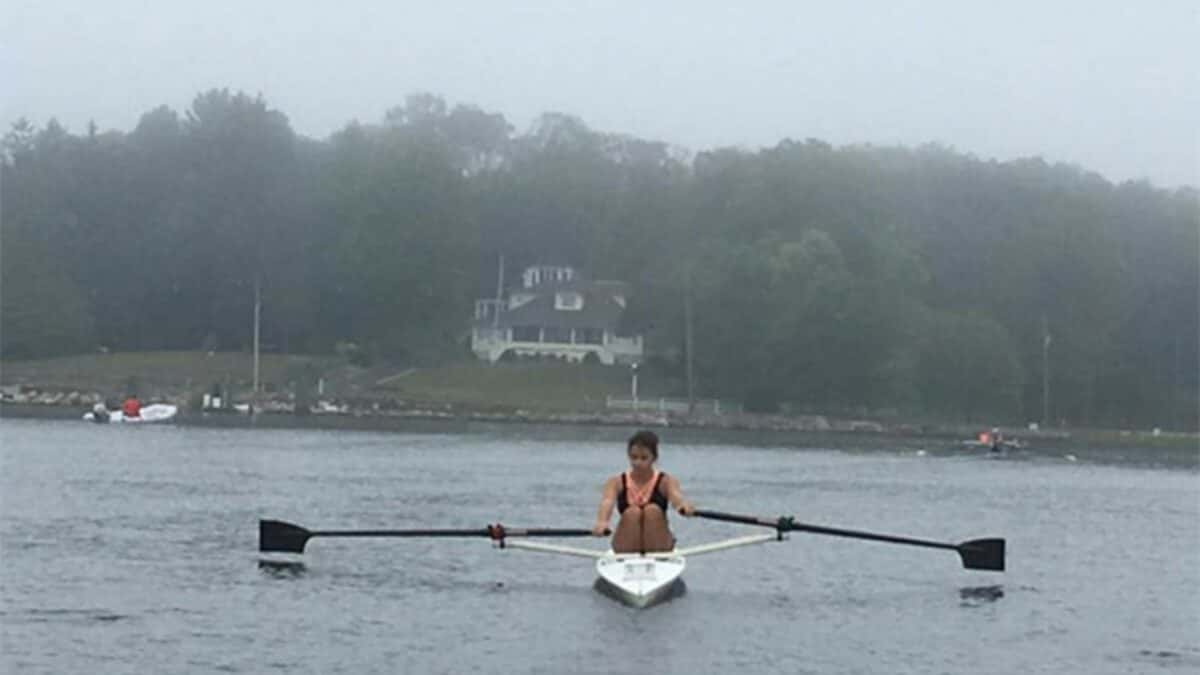
30 Jan 2018
Innovation for visually impaired rowers
“It’s because she has danced ballet for most of her life,” Berry says. “When she gets into a boat, it’s like somebody dropped a feather in it.”
It is at this stage in the conversation that Berry might tell you that Priebe is blind. At a very young age, she was diagnosed with Leber congenital amaurosis (LCA), a rare eye disease that appears at birth or in an early stage of a child’s life and leads to a total loss of vision.
Priebe and her family live in Ledyard, Connecticut, USA. When her older brother, Dante, started to row on the Thames River in 2015, Sofia joined too. That is where she met Berry, who would become her coach.
Priebe does not like special treatment. “I thought it would be perfect if she could row a single, just like everybody else,” says Berry, who, as a jack of all trades, came up with a device with which he could remotely steer the rudder of Priebe’s boat. “I thought about all the existing components that I would need and attached them to a single.”
With his innovation, called The Remote Coxswain, Berry steers Priebe’s single from a following launch. They have even tried the innovation during a race.
“She was not rowing in an adapted race, she was rowing the full 2,000-metre course with girls in her own age group and won in the young women’s recreational category. It was probably the straightest race, ever rowed on that course, ever,” Berry says. “With remote coxing, a rower with poor vision doesn’t have to row in a double with someone else, or in a larger crew boat.”
The remote-controlled rudder can be used from a launch that is up to 150 metres away from the rower. It will help people with vision impairment to a new life on the water independently.
Berry himself started rowing late in life. Growing up in a working-class family, as a child he saw Harvard and Yale Universities practice and he watched the crews racing in the Harvard–Yale Boat Race every June. It wasn’t until 2007, at age 45, that Bob began rowing. He is now employed by Harvard to do restoration work at Red Top, Harvard’s boathouse.
“Then I started coaching para-rowing in 2009 at Noank Rowing Club,” Berry says. Last June, Sofia and Dante signed up for a sculling class at Noank RC.
When asked if rowing is a good sport for blind children, teenagers and adults, Priebe answers, “Yes, I think so, especially if you are on a team. It’s nice to feel the team spirit.”
“Rowing is one of those sports that is very attractive to visually impaired (VI) athletes for the team aspect,” Thomas Darling, US Rowing’s director of para-rowing says. “Steering typically is not something they have to worry about in a team boat. VI athletes in a single are usually assisted by a ‘buddy rower’ in another single, or a coach giving verbal commands by radio or megaphone from a launch.” Darling continues, “During the last four years, I have met more than 30 VI rowers at various camps and regattas.”
To read more about The Remote Coxswain, click here.
Copy thanks to Göran Buckhorn

